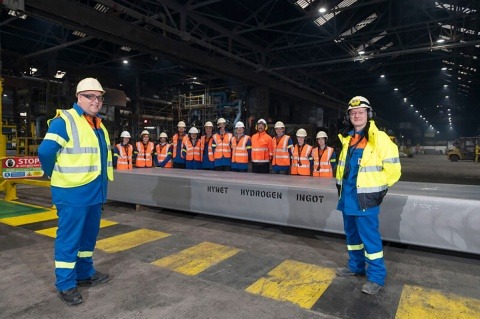Novelis Pioneers Hydrogen-Powered Aluminium Recycling for Industry Decarbonisation
Key Ideas
- Novelis successfully tests hydrogen fuel at its Warrington plant, achieving up to 90% CO2 emissions reduction compared to natural gas, supporting industry decarbonisation goals.
- The company blends varying percentages of hydrogen with natural gas to evaluate infrastructure impact and equipment compatibility, marking a significant advancement in sustainable aluminium production.
- The project, supported by UK government grants, demonstrates the viability of hydrogen as a decarbonisation solution for energy-intensive industrial processes within the aluminium industry.
- Novelis aims to increase recycled content to 75% and reduce carbon emissions to less than 3 tonnes CO2e per tonne of aluminium shipped by 2030 as part of its sustainability vision.
Novelis has made a major advancement in sustainable aluminium production by successfully testing a hydrogen-powered recycling process at its Latchford plant in Warrington, United Kingdom. This achievement marks significant progress towards industry decarbonisation goals, with up to a 90% reduction in CO2 emissions compared to natural gas. The trial, conducted as part of the UK government's Industrial Fuel Switching Competition programme, involved blending varying percentages of hydrogen with natural gas to assess infrastructure impact and equipment compatibility. The successful trials position Novelis as a pioneer in industrial-scale hydrogen use for aluminium recycling, a crucial development for the industry seeking to decarbonise energy-intensive processes. Further downstream processing will be completed at other Novelis plants in Europe to establish end-to-end parameters for hydrogen-based recycled alloy production. The project is supported by UK government grants and is part of the wider HyNet initiative focusing on hydrogen production, transportation, and storage. Novelis aims to increase recycled content and reduce carbon emissions significantly by 2030. The company's vision includes doubling its used beverage can recycling capacity, reducing CO2 emissions, and driving research into the deployment of hydrogen in recycling operations worldwide.
Topics
Power
Renewable Energy
Infrastructure
Innovation
Sustainability
Decarbonisation
Sustainable
Industry
Recycling
Latest News
